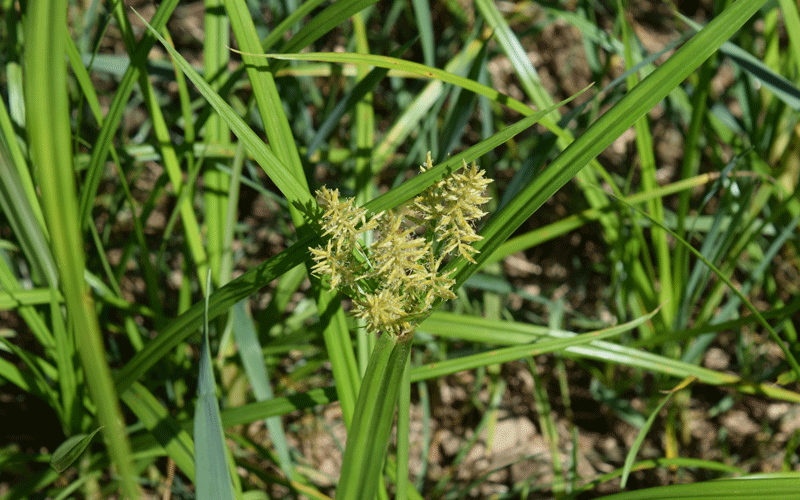Six Tips for Optimizing Late-Summer Weed Control
Select the right solutions and practices to manage sedges, broadleaf weeds and grasses this fall
Late-summer weed control in warm-season lawns becomes difficult as weeds mature and harden off. In addition to a variety of grassy, broadleaf and sedges(with differing life cycles and susceptibility to herbicides), warm-season turf, higher temperatures and even marginal drought stress can dramatically increase the chances of phytotoxicity of applied herbicides.
Six Tips for Optimizing Late-Summer Weed Control:
- Evaluate growing conditions to maintain cultural control. Maintaining a dense turf is critical for limiting weeds. If a site has constant problems with weeds or any other category of pest, evaluate the growing conditions for soil fertility, compaction, thatch, shade and drainage and mitigate as needed.
- Timing is key for controlling warm-season sedges. Sedges in warm-season turf are highly variable, from perennial yellow and purple nutsedges to annual and perennial kyllingas. Annual sedges will be difficult to control at this point since they are almost fully mature and nearing the end of their life cycle in some parts of the country. Fortunately, landscapers have several options for controlling sedges in warm-season turf, including the newest Envu herbicide, Celsius® XTRA herbicide, which provides excellent control of sedges and other weeds. In addition, Tribute® Total herbicide provides postemergence (POST) control of many annual and perennial sedges as well as many grassy and broadleaf weeds.
- Repeat applications may help control broadleaf weeds. Doveweed, dollarweed, Virginia buttonweed and many other summer weeds can be difficult to control and will require repeat applications at this time of year. Celsius XTRA herbicide, Celsius® WG herbicide and Tribute Total herbicide provide POST control and could be used in a tank mix with Specticle® FLO herbicide to extend residual control.
- Controlling grasses often requires a different approach than controlling weeds. Preemergence (PRE) applications of Ronstar® FLO herbicide and/or Specticle FLO herbicide should control annual grasses but will have limited effect on perennial grassy weeds. Revolver® herbicide, Sencor® 75 herbicide, Tribute Total herbicide and Celsius WG herbicide are labeled for some use on grassy weeds depending on the weed and turf species.
- Moisture levels and drought conditions affect POST herbicide control. (Goosegrass, bull paspalum, dallisgrass and other grasses.) POST goosegrass control with Tribute Total herbicide can vary greatly under different soil moisture levels. University of Tennessee researchers reported less than 25% goosegrass control under dry conditions (<12% VWC), while greater than 80% goosegrass control occurred when soil remained moist (>20%). Drought conditions will also affect control from other POST herbicides on various weeds.
- Read label precautions carefully before treating St. Augustine lawns. St. Augustine can be susceptible to herbicide damage, so it’s important to pay close attention to label precautions. This can also help minimize the risk of turf injury that can occur with effective summer weed control. Specticle FLO herbicide is highly effective as a PRE and should be combined with POST for the most effective long-term control. Celsius WG herbicide controls more than 125 broadleaf and grassy weeds in St. Augustine grass lawns, eliminating the need for tank-mixing multiple herbicides. Finally, Celsius XTRA herbicide controls the same grassy and broadleaf weeds as Celsius WG herbicide plus nutsedges, kyllingas and annual sedges with a single herbicide.
Need more information for managing your late-season turf? Read and follow all label directions and contact your Envu area sales manager for assistance.

